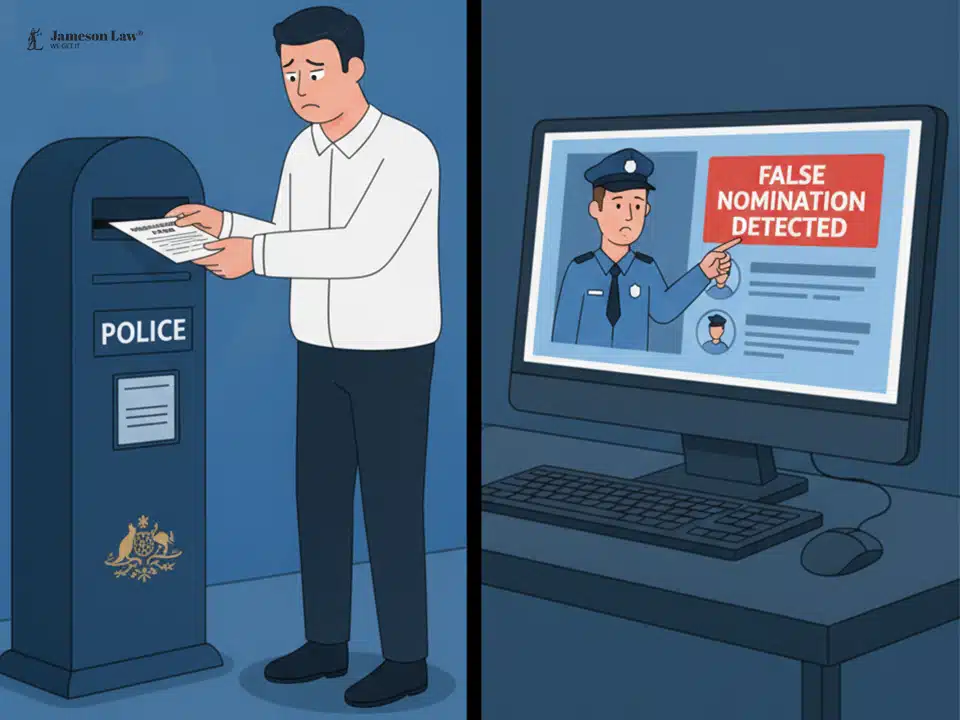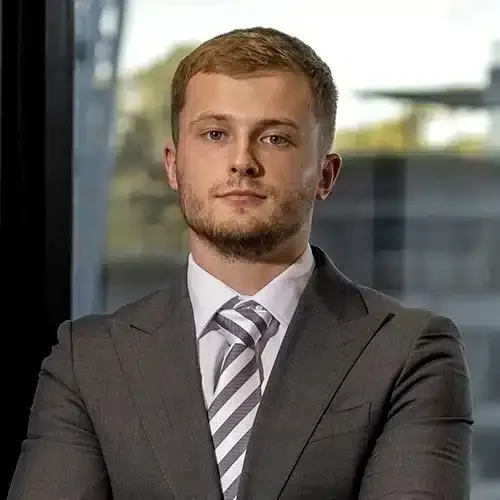Charged with Making a False Nomination? A Guide from Expert NSW Traffic Lawyers
Receiving a penalty notice for speeding or running a red light is stressful. The fine hurts, but for most people, the real risk is the demerit points. Lose enough points and you can lose your licence, which can put your job at risk.
In that pressure, some people name a friend, a relative, or even a made-up person to “take the points”. That split-second decision turns a traffic fine into a criminal matter. If you have been charged with a false nomination in NSW, get advice early.
At Jameson Law, our traffic offence lawyers appear daily in the Local Court across Sydney and Parramatta. We can step in quickly, deal with police, and build a strategy to protect your record.
What is a “False Nomination” in NSW?
For camera offences, the registered owner is presumed responsible. You can legally nominate the actual driver by completing a statutory declaration. A false nomination happens when you sign that declaration with details you know are untrue, such as:
- Naming someone who was not driving.
- Using a fictitious name or fake contact details.
- Claiming the car had been sold when it had not.
- Nominating a person who was overseas at the time.
See the official nomination process on Service NSW.
The Legal Trap: How a Fine Becomes a Criminal Charge
Once a false statutory declaration is submitted, it stops being a simple fine. It becomes a criminal investigation. Your matter can move from Revenue NSW to NSW Police and then to the Local Court before a Magistrate. You are sentenced for the false declaration, not for speeding.
The Charges Prosecutors Use
1) Oaths Act 1900 (NSW) — False Declaration
Section 25 makes it an offence to wilfully and corruptly make a false declaration. The maximum penalty is up to 5 years imprisonment.
2) Crimes Act 1900 (NSW) — Perverting the Course of Justice
For serious or repeated conduct, police may allege an attempt to pervert the course of justice under section 319. The maximum penalty is up to 14 years imprisonment.
3) Crimes Act 1900 (NSW) — Giving False or Misleading Information
Section 307C covers giving information to a public authority that you know is false or misleading. The maximum penalty is up to 2 years imprisonment.
How False Nominations Are Investigated
- Photo Checks: Driver image compared with the nominated person.
- RMS Records: Licence number and address matched against Service NSW data.
- Travel Records: Border data used if an overseas driver is nominated.
- Direct Contact: Police contact the nominated person who often denies being the driver.
- Forensics: In some cases, handwriting comparison is used.
Real Penalties the Court Can Impose
- Criminal Conviction: Can affect jobs, visas, and professional accreditation.
- Fines: Significant court fines can be imposed in addition to the original infringement.
- Imprisonment: Possible for serious or repeat offending.
- Community-Based Orders: CCO or ICO with strict conditions.
Defences and Strategies
Being charged does not make you guilty. A specialist traffic lawyer in Sydney will assess:
- Honest and Reasonable Mistake of Fact: You genuinely and reasonably believed the nominee was the driver based on information available at the time.
- Duress: You were forced to sign under threat.
- Identification: You did not sign or submit the declaration.
Where a plea is the better option, we focus on avoiding a recorded conviction by seeking a Section 10 dismissal, supported by character references, apologies, and relevant programs.
What to Do Right Now
- Do not answer police questions without advice. You have the right to silence.
- Get documents together: The penalty notice, the declaration, and any messages or calendar entries that informed your belief.
- Speak to a lawyer quickly. Early intervention can change the outcome.
Final Thoughts
Dealing with false nomination charges in NSW requires immediate legal attention. The transition from a traffic infringement to a criminal charge is serious, but there are clear legal pathways to manage and mitigate the impact on your future.
We at Jameson Law understand the stress of these situations. Our team of experienced solicitors in Parramatta and Sydney is ready to defend your rights and guide you through the Local Court process. Contact Jameson Law today for a confidential consultation.













